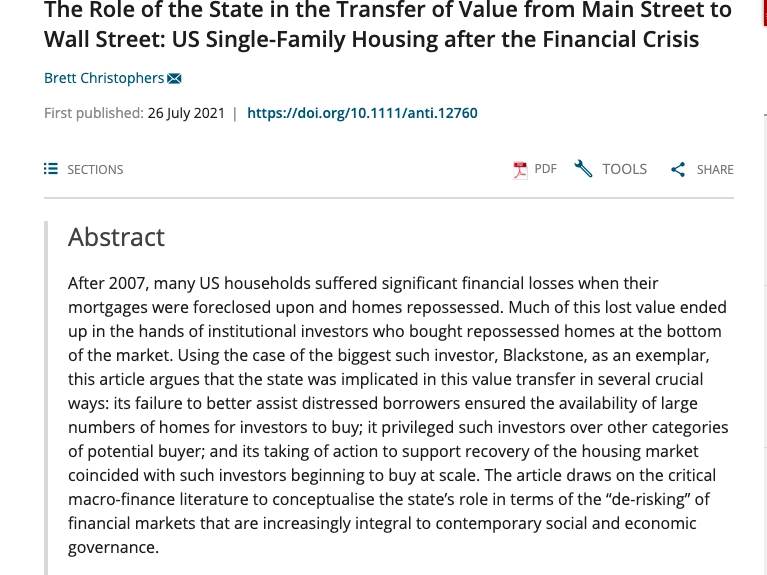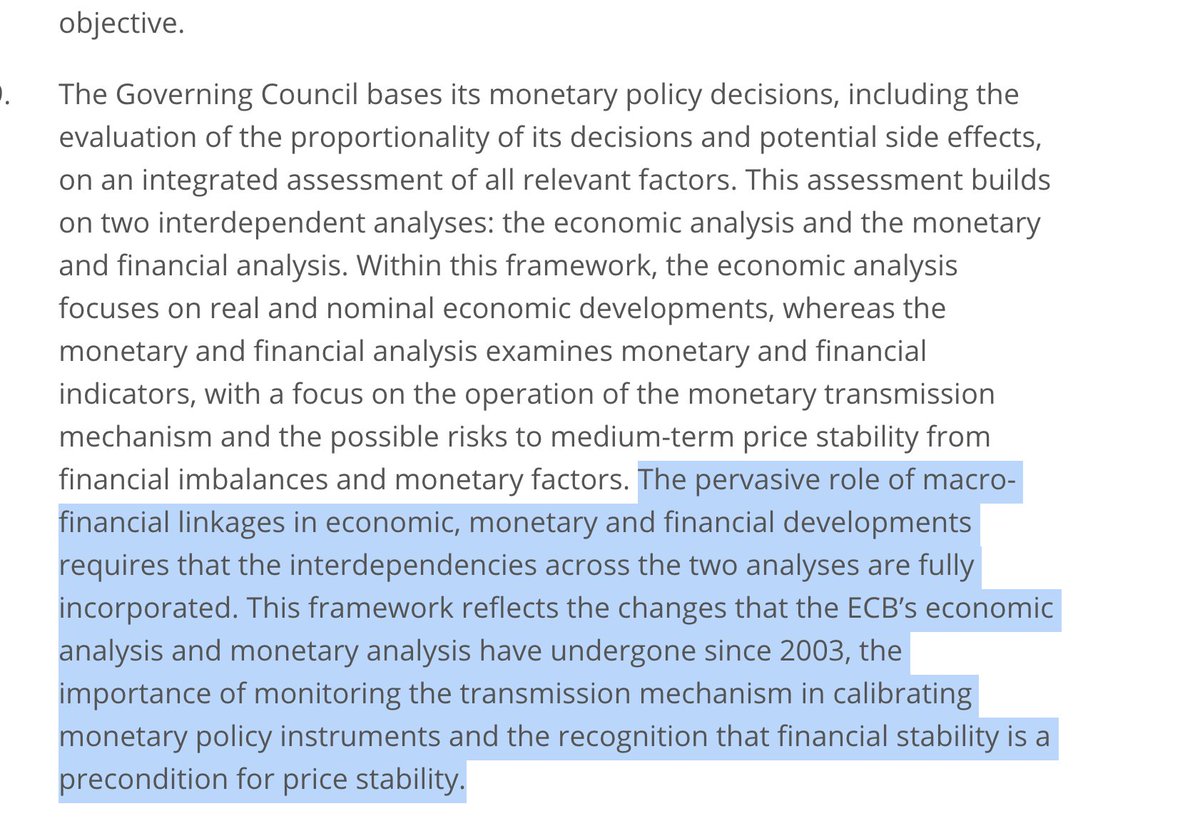
I love infrastructure just as much as any post/Keynesian, and what concerns me (analytically and politically) is not @adam_tooze obsession with infrastructure but financial capital's.
https://twitter.com/adam_tooze/status/1425071935554158604
@adam_tooze so we should be talking political economy of Infrastructure as an Asset Class: why and how did private finance sell infrastructure as a transformative economic policy to governments everywhere, formally at G20 since Argentina's (2018, Macri) presidency? 

the why according to Natixis: financial capital wants to run our environmental, technological and social transition #WallStreetConsensus 

to run this transition, financial capital has done a Grand Infrastructure Bargain with the state, ensuring that the state derisks accumulation via infrastructure investment
take the latest trend of private equity gobbling up residential housing around US and Europe: as Brett Christophers shows in a brilliant paper, the state is your institutional landlord's best derisking friend 

this is not just regulatory derisking for private equity but also fiscal derisking for portfolio investors- guaranteeing profitability of Infrastructure Asset Classes
https://twitter.com/DanielaGabor/status/1376437117417570304?s=20
The How of Infrastructure as An Asset Class has to do with hegemonic macro paradigm of the past 40 years.
Infrastructure as an Asset Class is a status-quo solution to climate/other crises for governments that cant/wont abandon 'monetary dominance, fiscal subordination' thinking
Infrastructure as an Asset Class is a status-quo solution to climate/other crises for governments that cant/wont abandon 'monetary dominance, fiscal subordination' thinking
in mind-boggling political events, private finance has convinced governments (and some scholars) that derisking infrastructure asset classes is industrial policy
talk about bastard Keynesianism.
talk about bastard Keynesianism.
I will die on this hill: derisking infrastructure asset classes is not industrial policy.
show me infrastructure policy that has driven structural transformation of your productive system without preferential credit for strategic industrial sectors
show me infrastructure policy that has driven structural transformation of your productive system without preferential credit for strategic industrial sectors
https://twitter.com/DanielaGabor/status/1385116965757390851?s=20
the most outrageous is claim that financial capital will drive our low-carbon transition (as in green infrastructure asset classes, nature as an asset class)
claim legitimised by a global technocratic elite that reminds me of servile Romanian intellectuals under Ceausescu
claim legitimised by a global technocratic elite that reminds me of servile Romanian intellectuals under Ceausescu
delusional? internal logic of turn to infrastructure as an asset class?
private finance sees itself as the SOLUTION, not the threat to climate!
bloomberg.com/news/articles/…
private finance sees itself as the SOLUTION, not the threat to climate!
bloomberg.com/news/articles/…

for the past year, I (and several others) have been warning about finance lobbies, spearheaded by BlackRock, pushing hard to greenwash the EU Sustainable Finance taxonomy.
the shock!
bloomberg.com/news/articles/…
the shock!
bloomberg.com/news/articles/…
as I warned in February 2020, greenwashing the EU Sustainable Finance is not accidental (as Bloomberg article above suggests), but integral to a strategy of generating returns from the climate crisis
theguardian.com/commentisfree/…
theguardian.com/commentisfree/…

• • •
Missing some Tweet in this thread? You can try to
force a refresh










